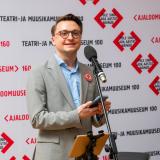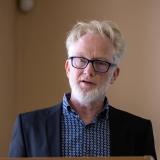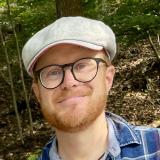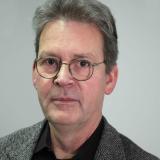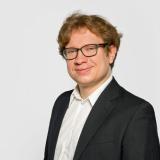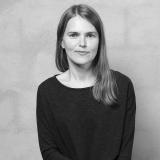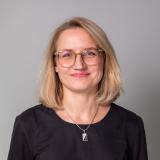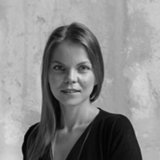Baltic | Bulwark against the East or Imperial Outpost? Baltic Germans in the Russian Empire
Sponsored by:
Edward J. and Dorothy Clarke Kempf Memorial Fund
Yale Baltic Studies Program
Estonian Academy of Arts
Photo Credit: Von Grünewaldt family in Mäo (Mexhof) manor, 1917. Photo: Karl Akel (Film Archives, National Archives of Estonia).
Many Eastern European peoples whose homelands share a border with Russia developed narratives in the nineteenth and twentieth centuries that they were bastions of western civilization beyond which extended Russian imperial foreignness. The view within Russia proper was increasingly that the Baltic region was an “outpost of Russia.” This two-day symposium examines the Baltic region and its former German-speaking elite – Baltic Germans (Deutschbalten) – from this two-fold perspective. We seek to understand the development of these narratives among and about Baltic Germans in the late tsarist era, as well as their later afterlives.
Inhabiting from the thirteenth century the territories that today form Estonia and Latvia, German speakers constituted both the landed and urban elite in both the early modern and modern eras, including after these lands became part of the Russian Empire during the reign of Peter I. Germans continued to come to the area into the nineteenth century. In their case, it was precisely their Germanness that they held as a “bulwark against the East,” a common motif in both the Baltic German texts and, especially, propagandist texts published in Germany in the latter nineteenth and early twentieth centuries.
And yet the Baltic Germans also served the Russian Empire in a multitude of ways – as the local governing elite, as officials in the imperial administration in the imperial capital and wider empire, as military officers, scientists, explorers, and a significant portion of the privileged tsarist educated elite. In addition to examining the narrative of Baltic Germans as guardians of a western border zone, this symposium will thus also consider how this topic was viewed by Russian officials and publicists. In many Russian-language publications, the Baltic provinces of the Russian Empire were depicted as Russian “national territory.”
This symposium addresses new and recently uncovered perspectives and new research on these issues. It engages scholars who have recently finished new publications or research projects that put the relevant questions in a new light.
Sponsors
Edward J. and Dorothy Clarke Kempf Memorial Fund
Yale Baltic Studies Program
Estonian Academy of Arts
Abstracts
Friday, February 7
| 9:00 am |
Introduction: Baltic Germans in Between Kristina Jõekalda (Estonian Academy of Arts, Tallinn), Bradley Woodworth (Yale University / University of New Haven) |
| 9:15 am |
Panel 1 Moderated by Bradley Woodworth A “Balcony” to Control Europe or a “German Fortress” on Russian National Territory? The Changing Perception of the Baltic Provinces in the Late Tsarist Empire Karsten Brüggemann (Tallinn University), online Baltic German Responses to Imperial Russia’s Judicial Reform, 1860–1917 Patrick Monson (Brigham Young University-Idaho, Rexburg), online The Baltics as a Bridge to the Russian Market? Baltic German and Reich German Entrepreneurs in Riga, 1870s to 1914 Katja Wezel (University of Göttingen) |
| 11:15 am | Break |
| 11:30 am |
Panel 2 Moderated by Jörg Hackmann Adam Johann von Krusenstern: A Baltic German or Russian Explorer and Scientist? Feliks Gornischeff (Estonian Maritime Museum, Tallinn) Dorothea Lieven, a Russian Princess in London and Paris Judith Lissauer Cromwell (New York) “He Made Me Think About Russian History”: Gustav von Ewers and Russian Historiography Bradley Woodworth (Yale University / University of New Haven) |
| 1:30 pm | Lunch Break |
| 4:00 pm |
Panel 3 Moderated by Kristina Jõekalda “Internal Colonisation in the Baltics”? The Baltic German Settlement Scheme, 1906–1914 Tim Buchen (University of Wrocław) “Oldest Colony” and “New Land in the East”: German Colonization Plans in the Baltic, 1914–1919 Ron Hellfritzsch (German Optical Museum, Jena) Instrumentalization of Baltic Germans in the Occupied Western Borderlands of the Russian Empire, 1915–1918 Klāvs Zariņš (Latvian War Museum / Institute of Latvian History, Riga) |
Saturday, February 8
| 9:00 am |
Panel 4 Moderated by Tim Buchen On the Boundary: Baltic German Historians in Germany as Experts of the East Jörg Hackmann (University of Szczecin / University of Greifswald) The von Stryk Conspiracy: Baltic German Politicians and Swedish Volunteers in Late 1918 and Early 1919 Mart Kuldkepp (University College London) Constructing (Baltic) Germanness in a 1918 Propaganda Exhibition: The Art Section Kristina Jõekalda (Estonian Academy of Arts) Baiba Vanaga (Latvian National Museum of Art, Riga) |
| 11:00 am | Break |
| 11:15 am |
Panel 5 Moderated by Katja Wezel German Enough? Self-fashioning and Identity of Baltic German Women Artists in the First Half of the 20th Century Ragne Soosalu (Estonian Academy of Arts) German Working Women in the Republic of Estonia: Baltic Germans from a Non-Elite Perspective Heidi Rifk (Tallinn University) Elites After the Empire: Baltic Germans in Europe in the 1920s and 1930s Timo Aava (London School of Economics) |
| 1:15 pm |
Concluding Discussion Moderated by Kristina Jõekalda and Bradley Woodworth |
Speakers
Timo Aava is a historian of modern Europe focusing on the history of political thought and minority rights. Between 2023 and 2024, he was a postdoctoral fellow at the Jacob Robinson Institute for the History of Individual and Collective Rights at the Hebrew University of Jerusalem. In the 2024-2025 academic year, he will hold academic positions at Yale University, the London School of Economics and Political Science, and Harvard University.
Karsten Brüggemann is Professor of Political and Social History at Tallinn University (Estonia). He received his PhD from Hamburg University in 1999 with a study on the Russian Civil War in the Baltic region and defended his Habilitation at the University of Gießen in 2013 analysing imperial Russian discourse about Estland and Livland provinces (an English translation is forthcoming in 2025). His main fields in research are the entangled history of the Baltic region and the Russian Empire / Soviet Union. He has published widely on topics like the Baltic independence wars, Stalinist culture, memory conflicts, imperial encounters, sports, tourism, transnationalism and the relations between Soviet internationalism and nationalism. He is co-founder of the journal "Forschungen zur baltischen Geschichte" and co-editor of "Zeitschrift für Ostmitteleuropa-Forschung." Since 2023, he serves as President of "Baltische Historische Kommission." He is currently leading a project called "The 'Soviet West' Revisited: Individual and Collective Agency in the Contact Zones of Everyday Life in the Estonian SSR" (2024-2028) with a broader agenda concerning transnational peripheries. In 2022, he received the National Award in Humanities of the Republic of Estonia.
Tim Buchen is the Zofia and Tadeusz Heimrath Associate Professor for the History of the Jews of Breslau and Silesia at the Taube Department for Jewish Studies at the University of Wroclaw. His current research focusses on the formation of Jewish Elites and the medical field in Breslau (1854-1933) and on German settlement colonialism and expropriation in Eastern Europe 1861-1950.
Feliks Gornischeff is a researcher at the Estonian Maritime Museum. He is conducting a research project on the Baltic German exploration in the early 19th century, focusing on Adam Johann von Krusenstern. Gornischeff has defended his PhD thesis on the Baltic German diplomats in the Russian service during the Napoleonic Wars at the University of Tartu in 2020.
Jörg Hackmann is a Professor at the Department of History and Director of the International Center for Interdisciplinary Studies at the University of Szczecin, Poland. He holds a PhD from the Free University Berlin and received his habilitation at the University of Greifswald with a study on “Sociability in North Eastern Europe”. Jörg has been a visiting scholar at many universities in the Baltic Sea region as well as at the University of Chicago. His publications focus on the entangeld history of historiography and historical ideas and on the history of voluntary associations and civil society in East Central Europe and the Baltic region. Further research interests include Baltic Sea region building, the transnational memory of World War II, minority politics in the Baltic states, and the Jewish topography of (German) Szczecin. He serves currently as President of the Association for the Advancement of Baltic Studies (2024-2026) and as Vice-President of the Johann Gottfried Herder Research Council (Germany).
Ron Hellfritzsch studied history, political science and modern history at the Friedrich Schiller University in Jena and the Latvijas Universitāte in Riga. He wrote his phd in Eastern European history at the University of Greifswald. In October 2022 Ron Hellfritzsch successfully defended. Currently he prepares it for publication. Ron Hellfritzsch worked in the Jena University Archives and was acting manager of the Historical Commission for Thuringia e.V. He has been working in the provenance research project "INSIGHT D.O.M" since February 2020, and Since January 2021 Ron Hellfritzsch works as research assistant and project coordinator in a provenance research project at the Deutsches Optisches Museum in Jena. Ron Hellfritzsch is a board member of the Deutsch-Baltisches Kulturwerk/Carl-Schirren-Gesellschaft e.V. in Lüneburg, member of the Baltische Historische Kommission and editorial board member of the Journal “Deutsch-Baltisches Jahrbuch”
Kristina Jõekalda is an associate professor (Doctoral School) and senior researcher (Institute of Art History and Visual Culture) at the Estonian Academy of Arts, Tallinn. She studied there and at the University of Helsinki. Her previous engagements include being a postdoctoral associate at Yale University, and a visiting fellow at the Central Institute for Art History in Munich and at the Humboldt University of Berlin. Jõekalda is interested in power relations behind art history. Her dissertation is published as “German Monuments in the Baltic Heimat? A Historiography of Heritage in the ‘Long Nineteenth Century’” (Tallinn 2020). Her most recent publication is the edited volume “War on Monuments: Documenting the Debates over Russian and Soviet Heritage in Eastern and Central Europe” (special issue of kunsttexte.de 2024). She co-edited “A Socialist Realist History? Writing Art History in the Post-War Decades” (Vienna/Cologne/Weimar 2019), as well as the special issues “European Peripheries of Architectural Historiography” (The Journal of Architecture 2020) and “Debating German Heritage: Art History and Nationalism during the Long Nineteenth Century” (Kunstiteaduslikke Uurimusi / Studies on Art and Architecture 2014).
Mart Kuldkepp is an Estonian Scandinavianist and historian. He completed his PhD in Scandinavian Studies at University of Tartu, Estonia, in 2014, and in 2015 he joined University College London (UCL) where he is currently Professor of Estonian and Nordic History. Mart specialises on Scandinavian and Baltic history and politics – especially foreign and security policy – and early 20th century wars. He has published on the idea of Estonia's Nordic identity, German annexationism in the First World War, Swedish right-wing nationalism in 19th and early 20th century, and the experiences of soldiers in the First World War and the Estonian War of Independence. He is also interested in contemporary Baltic and Scandinavian politics, especially foreign and security policy. Furthermore, he has a side interest Medieval Old Norse-Icelandic literature and culture.
Judith Lissauer Cromwell is a magna cum laude graduate of Smith College, holder of a doctorate in modern European history, with academic distinction, from New York University, and a veteran of corporate America. She returned to academia as an independent historian to write "Dorothea Lieven, A Russian Princess in London and Paris," Judith’s first biography about a woman who made a difference in Western history. "Florence Nightingale, Feminist," and "Good Queen Anne" followed; "Louise-Élisabeth Vigée Le Brun, Portrait of an Artist" is due to be published in 2025.
Patrick Monson has studied East European/Russian history at Brigham Young University, the University of Tartu, The Hebrew University of Jerusalem, and Princeton University. His dissertation analyzed judicial reform and legal cultures in the late 19th-century Baltic provinces. His research has been supported by Fulbright, the Association for Slavic, East European, and Eurasian Studies, and others. He currently serves as a digital archivist for Eastern Europe at FamilySearch; and teaches paleography and genealogical writing at BYU-Idaho.
Heidi Rifk is a junior researcher at Tallinn University and a PhD student specializing in contemporary history, focusing on the socioeconomic status of Baltic Germans in interwar Estonia. She has cooperated with the Herder-Institut, Dartmouth College, and the Böckler-Mare-Balticum-Stiftung. Heidi has presented at numerous international conferences and has published in several international journals, including Forschungen zur baltischen Geschichte, Acta Historica Tallinnensia, and Zapiski Historyczne. Her doctoral studies are supervised by Prof. Karsten Brüggemann from Tallinn University and Prof. Ago Pajur from Tartu University.
Ragne Soosalu is a doctoral fellow, junior researcher and a lecturer at the Institute of Art History and Visual Culture in the Estonian Academy of Arts. Before starting her doctoral studies, she worked at the Kumu Art Museum in Tallinn, as a curator and project manager, editing and compiling several exhibition catalogues. Ragne’s doctoral thesis is focusing on minority women artists during the period of about 1890 to 1940 in the area of Estonia and later the Estonian Republic.
Baiba Vanaga studied art history and theory at the Art Academy of Latvia and museology at the Latvian Academy of Culture. In 2015, she defended her doctoral thesis at the Art Academy of Latvia, and the theme of her research work was ‘Women Artists in Latvia from the mid-19th Century until 1915’. Since 2024, Baiba Vanaga works at the Latvian National Museum of Art. She has worked at the National Archives of Latvia and at the Rundāle Palace Museum, and participated in a research project ‘Women Agency in Latvian Culture and Society (1870–1940)’ at the Institute of Literature, Folklore and Art of the University of Latvia (2021–2023). Since 2004, she has participated in conferences in Latvia (Riga, Rundāle), Estonia (Tallinn), Lithuania (Vilnius, Kaunas), Finland (Helsinki), Poland (Warsaw), Germany (Bremen, Greifswald, Berlin), Ireland (Cork) and Croatia (Zagreb), and has written several articles for Latvian, Estonian, Lithuanian, English and German publications. Her research interests are women artists, historical collections and artistic life in Latvia from the late 18th century until the middle of the 20th century.
Katja Wezel is a senior researcher and lecturer at the Institute for Economic and Social History at the University of Göttingen, where she is currently working on a research project titled “At the Crossroads of Modernity: Double-Entry Accounting, Business, and Cultural Practices of Jews in Imperial Russia's Western Borderlands”. She studied History and English at the Universities of Heidelberg, Aberystwyth (UK) and the European University St. Petersburg (Russia) from 1999 to 2004. In 2011, she completed her PhD at the University of Heidelberg with a thesis on memory politics in Latvia (title: Geschichte als Politikum. Lettland und die Aufarbeitung nach der Diktatur, published in 2016 by Berliner Wissenschafts-Verlag). From 2013 to 2018, she was the DAAD Visiting Assistant Professor at the University of Pittsburgh and subsequently senior researcher in Eastern European History at the University of Göttingen. From 2021 to 2023, she held a Feodor-Lynen Fellowship from the Alexander von Humboldt Foundation at the University of Latvia in Riga. She is currently writing an economic history of Riga in the period 1855 to 1939.
Bradley D. Woodworth is the Baltic Studies Program Manager at Yale University, and Professor of History at the University of New Haven. His research interests include the modern history of the Baltic region, and the history of the multiethnic Russian Empire in the tsarist period. He is co-editor (with Karsten Brüggemann) of Russland an der Ostsee. Imperiale Strategien der Macht und kulturelle Wahrnehmungsmuster (16. bis 20. Jahrhundert) [Russia on the Baltic: Imperial Strategies of Power and Cultural Patterns of Perception (16th-20th Centuries)] (Cologne, 2012). His articles include “Carl Gustaf Emil Mannerheim” (in: Russia’s People of Empire: Life Stories from Eurasia, 1500 to the Present. Eds. Stephen M. Norris and Willard Sunderland. Bloomington, 2012); “Music Associations and National Identity in Russia’s Baltic Provinces: The Case of Tallinn, 1850–1914” (in: Vereinskultur und Zivilgesellschaft in Nordosteuropa. Regionale Spezifik und europäische Zusammenhänge. Ed. Jörg Hackmann. Cologne, 2012); and “Multiethnicity and Estonian Tsarist State Officials in Estland Province, 1881–1914” (in: Russian Bureaucracy and the State: Officialdom from Alexander III to Putin. Eds. Donald K. Rowney and Eugene Huskey. Basingstoke, 2009).
Klāvs Zariņš holds the position of Researcher at the UL Institute of Latvian History, and also heads the History Department at the Latvian War Museum in Riga. In 2023, he defended his PhD thesis at the University of Latvia titled Policies of the German Military Administration in the Occupied Courland Governorate (May 1915 – March 1918).

